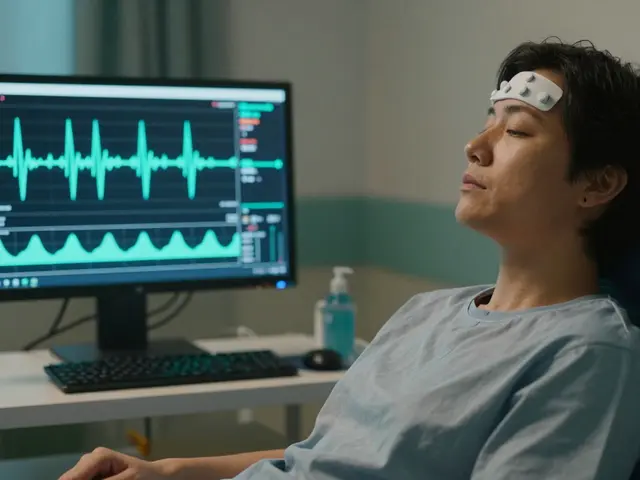Chronic Worry: Practical Steps to Calm Health Anxiety
Chronic worry keeps you replaying "what if" scenes until your head feels foggy and your body is tired. Worry often tricks you into thinking more thinking will fix things. It rarely does. Choosing a few practical habits beats endless rumination.
What is chronic worry? It’s a pattern of frequent, hard-to-control anxious thoughts about health, work, finances, or relationships that last months. It can show up as sleepless nights, muscle tension, or checking behaviors. Left alone, it eats energy, ruins focus, and makes small problems feel huge.
Quick tools you can use now
Breathing changes your nervous system fast. Try box breathing: breathe in for four seconds, hold four, out four, hold four. Do this five times when worry spikes. Progressive muscle relaxation tightens and releases muscle groups from feet to neck—use it before bed to fall asleep easier.
Grounding gives your brain a break. Name five things you can see, four you can touch, three you can hear, two you can smell, one you can taste. That simple list pulls you out of spirals in under a minute.
Set a daily "worry window." Give yourself 10–20 minutes once a day to write worries down and plan tiny actions. If a worry crops up outside that slot, jot it and move on. This trains your brain to postpone rumination without ignoring problems.
Daily habits that reduce worry
Mindfulness and short meditations build distance from thoughts. Clinical trials of mindfulness-based stress reduction show steady drops in anxiety for many people. Start with five minutes a day—watch thoughts like clouds without following them.
Biofeedback and heart rate variability (HRV) devices teach your body to calm itself. You don’t need fancy gear; smartphone apps with a simple sensor can guide breathing and show progress in minutes per day.
Move every day. A 20–30 minute walk lowers stress hormones and clears your mind. Add basic bodywork like self-massage or neck stretches to relieve the physical tension that keeps worry alive.
Nutrition matters. Small wins—adding omega-3 rich foods or a balanced breakfast—stabilize mood and reduce jittery thinking. Cut late caffeine and heavy sugar near bedtime to stop nighttime worry loops.
Healthy routines help. Sleep at consistent times, set limits on doomscrolling, and break big worries into tiny next steps. Goal-setting works: pick one small, concrete action you can finish this week and do it.
If worry interferes with daily life, reach out. Cognitive behavioral therapy, brief coaching, or talking with your doctor can cut cycles faster than trying to will yourself calmer. Medication is a valid tool when needed.
When worry focuses on health, limit how much you check symptoms. Pick one trusted source and set a rule: no symptom Googling after 8 p.m. If you need reassurance, schedule an appointment or a 10-minute call with your doctor during business hours. This gives structure and reduces late-night spirals.
Creative breaks work. Ten minutes of drawing, simple music, or free movement shifts focus from thought to doing. Therapists use art and music because making something reduces the urge to ruminate.
A simple daily plan: morning: five minutes breathing, quick walk, healthy breakfast. Midday: 10-minute worry window and one creative break. Evening: drop screens an hour before bed, progressive muscle relaxation, and a sleep time. Small repeats add up.
You can reduce chronic worry without changing your whole life. Use a few tools now, build steady habits, and ask for help when things feel out of control. Small, consistent steps lead to real relief.

Health Anxiety: When Worry Becomes a Disease
Hey there, in today's blog we're diving deep into a critical topic--Health Anxiety. This condition, also known as chronic worry, can be quite challenging and often misinterpreted. In this article, we aim to shine light on when consistent worry escalates to an anxiety disorder, and importantly, how it influences our mental wellbeing. Join us as we explore remedies, hear from experts and share personal stories. Get ready to break through fear and empower ourselves!

Understanding the Science Behind Biofeedback
Feb, 11 2026



